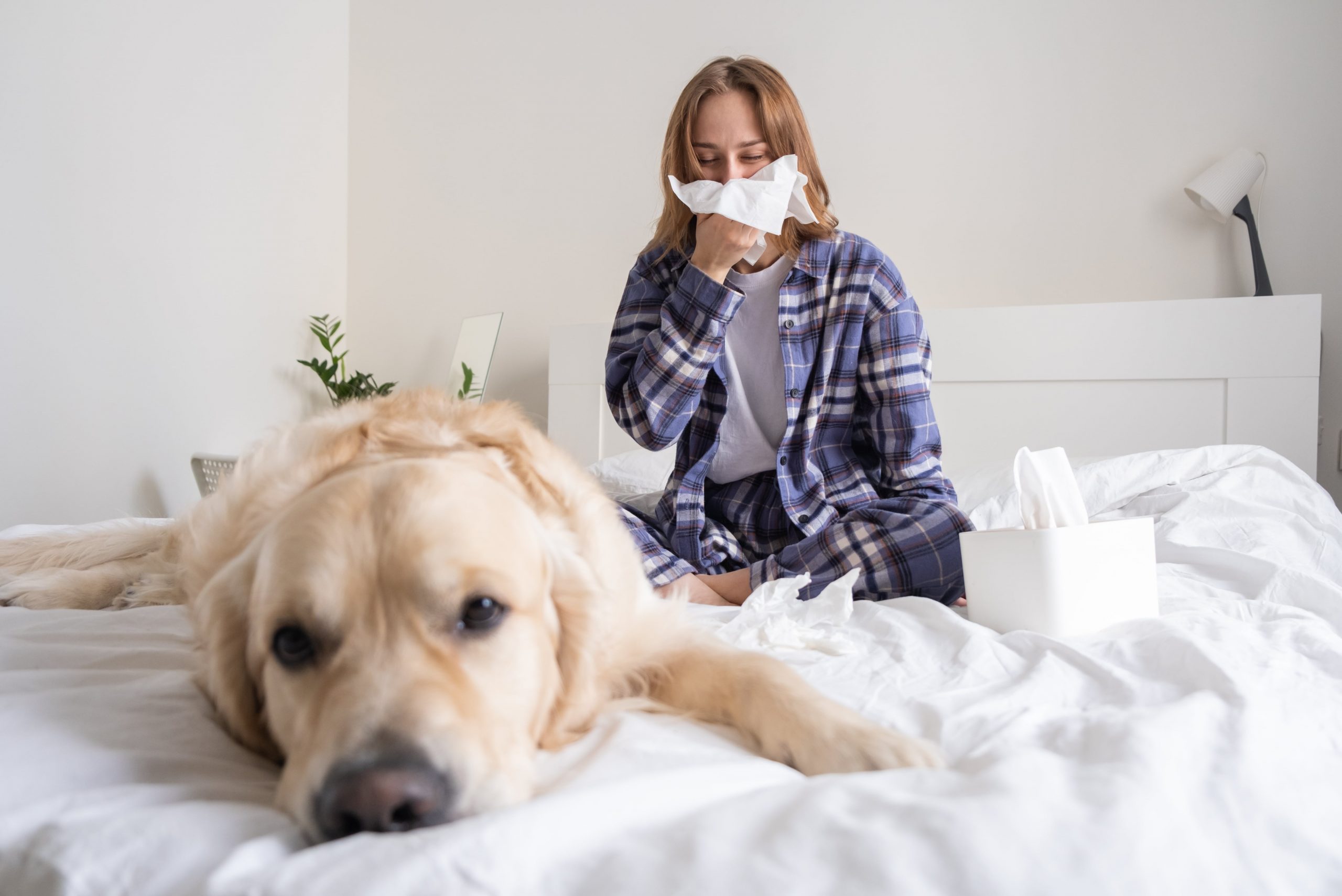Thankfully, there are numerous treatments to combat pet allergies so that you can continue enjoying the company of your furry friend. However, if the symptoms become too severe to manage or negatively impact your quality of life, then it may be time to consider giving up your beloved companion.
The initial step in treating allergies is recognizing what triggers you. From there, you can devise a treatment strategy to minimize exposure to triggers and avoid symptoms.
Allergies can be caused by a variety of allergens, such as pet dander (dead skin cells), mold and pollen. Additionally, some people have food intolerances.
Your doctor can diagnose pet allergies by asking you questions about your symptoms and exposure to different animals. They may suggest an allergy skin test or blood test as a way of screening the body for allergy-causing antibodies.
In most cases, a skin test will identify the allergen you are reacting to. This test is typically done on your forearm or upper back; however, you may be referred to an allergist for testing on larger parts of your body such as your lungs.
If your doctor suspects you have a pet allergy, they will likely suggest taking steps to minimize the likelihood of an allergic reaction. For instance, keeping your cat separate from other pets in a room might work or using an air purifier with a HEPA filter can help.
Other methods to manage your pet allergy symptoms include changing your lifestyle and taking medication to alleviate symptoms. A doctor may suggest over-the-counter antihistamines or prescribed allergy medicines like Zyrtec, Claritin, or Allegra.
Another option is to consult an allergist or immunologist for specialized testing and diagnosis. They can identify the specific allergens causing your symptoms, then devise a treatment plan to reduce those effects so you can enjoy spending time with your pet again.
The most effective way to treat a dog allergy is prevention. By regularly grooming your pup, you can reduce the dander they shed and thus the likelihood of developing an allergic reaction.
Untreated allergies in dogs can quickly lead to anaphylactic shock, which could be fatal if not addressed promptly. Therefore, contact your vet as soon as possible for advice and treatment.
Some other methods to prevent an allergic reaction in your dog include keeping them out of the sun, away from outdoor pollen and weeds, and regularly cleaning their food and water bowls. Litter box cleanings can also help eliminate dander from their environment.
Your veterinarian can prescribe allergy medications for dogs that are allergic to various allergens, such as ragweed, tree pollen and grass. These drugs reduce the inflammatory response to these triggers and provide relief from itchy watery eyes or sneezing in your pup.
If your doctor suspects you may be allergic to a certain animal, they can either prescribe medications or refer you to an allergy specialist. Depending on the severity of your reaction, an antihistamine may be prescribed in order to block the reaction and provide relief from itchy, watery eyes or sneezing.




